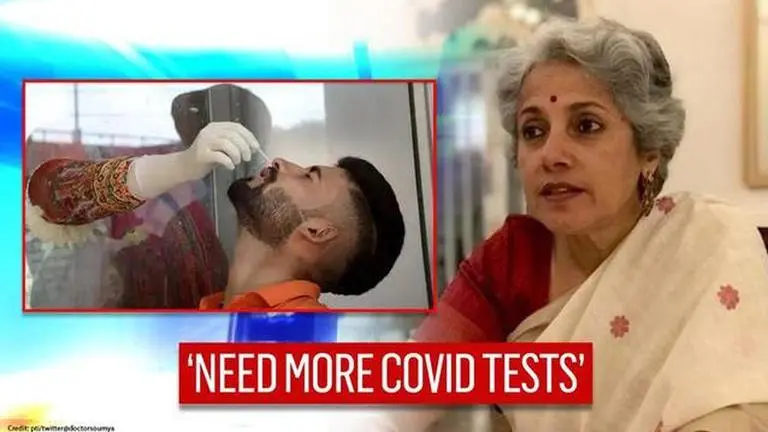Updated 28 February 2021 at 11:51 IST
WHO chief scientists argues why developed countries struggled with Covid; discusses India
Soumya Swaminathan, Chief Scientist of the World Health Organisation (WHO), said on Sunday that there should be more and continued COVID-19 testing in India
- India News
- 3 min read

Soumya Swaminathan, Chief Scientist of the World Health Organisation (WHO), said on Sunday that there should be more COVID-19 tests as there was heterogeneity in the testing methods among the states. While addressing a session at 'Shaastra' organised at the Indian Institute of Technology-Madras, she said diagnostics was lower than it should be.
"Testing is really an important issue. At the beginning, WHO found that many countries did not have diagnostics and those which had it was not enough. In fact, we found out that diagnostics was lower than it should be," said Swaminathan, reported PTI.
She stated that WHO has set a benchmark for how much diagnostics in testing was enough, if the positivity rate (of a disease) was five per cent or more, it means testing should be done more.
"There is a lot of heterogeneity in response to testing between state to state and some states have done higher than the others. Tamil Nadu has done well in terms of testing and when the cases were going up the Health Department had set up fever clinics in Chennai. So, the strategy needs to be decentralised," she added, reported PTI.
Advertisement
Swaminathan further said that it was not only the Health Department that needs to cope up but also all other major departments, like food and services. We should be able to identify the 'super-spreader' situations, she said.
"We now understand the disease (COVID-19) better, understand the epidemiology and it is super-spreader. We know that only 15-16 people who are infected are responsible for the remaining 85 people. We need to be able to identify those situations where these kinds of super-spreaders can happen. I think that (testing for COVID-19) will continue through 2021 as well, "she said, reported PTI.
WHO Chief scientist said some of the low-income countries performed better than the high-income countries as community health workers in (the low-income countries) came to the rescue during the pandemic.
Advertisement
"In low-income countries, the whole workforce for contact tracing, visiting houses, engaging community health workers are the ones who actually came to the rescue but whereas in the developed world, where the medical system is well advanced, the public health system was neglected. Over the years that aspect collapsed. The lessons should be learned whether the country is rich or poor and a country can learn from what went right and what did not go well so that the country can make those corrections," Swaminathan said, reported PTI.
The outbreak of the coronavirus disease (COVID-19) had been confirmed in over 210 countries and territories, as of February 26, 2021. The most severely affected countries include the U.S., Brazil, and India. COVID has infected over 113 million people worldwide, and the number of deaths has reached around 2.5 million.
(With PTI Inputs)
Published By : Astha Singh
Published On: 28 February 2021 at 11:51 IST
